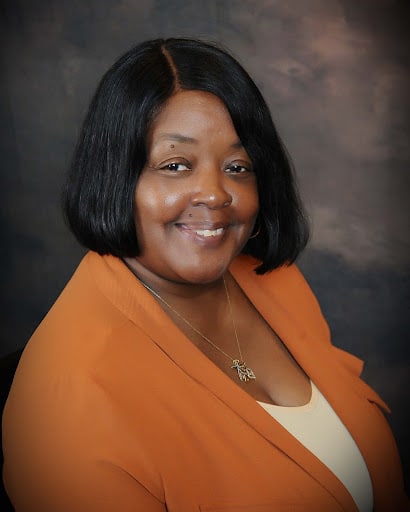Update 6/27/25: On June 25th, the PA House passed HB 506 — critical legislation that will invest $55 million in new and recurring funding for child care workforce recruitment and retention. While the legislation still needs to pass the Senate, this is the first step in passing essential legislation in support of the child care workforce.
Family Child Care Awareness Day began in 2021 to raise awareness about family child care, including who we are, what we do, and our unique contributions to the field of early childhood education. Since then, Family Child Care (FCC) Awareness Day, sponsored by First Up and the Family Child Care (FCC) Advisory Council, has been hosted annually. In 2023, Quality Influential Professionals, or QIP, joined the FCC advisory council strategic alliance. Through this alliance, QIP travels to Harrisburg, Pennsylvania, to speak with legislators and build relationships, advocate, and educate. This year, our goal was not only to impart on legislators how important family child care is, but also for them to support a new line item in the governor’s FY2026 budget proposal that would allocate $55 million toward funding that would directly support early education providers.
This year’s Family Child Care Awareness Day was held on June 9. Over 40 family child care (FCC) programs—along with parents and children—traveled to Harrisburg to advocate for the needs and voices of home-based child care providers. This collective effort was not only a show of strength in numbers, but also a vivid demonstration of unity and commitment to early childhood education at the community level. The event was a powerful and deeply impactful experience for everyone involved.
Throughout the day, participants engaged in meaningful small-group conversations with elected officials, many of whom expressed genuine interest in understanding the challenges and successes of FCC programs. These legislators took time to listen carefully to our stories and experiences, and many of them shared that our words resonated with them on a personal level. Some lawmakers revealed that they grew up in communities similar to the ones we serve—places where trusted, nurturing care environments like FCC homes are vital pillars for children and families. That shared background created an authentic and powerful connection that underscored the importance of the work we do.
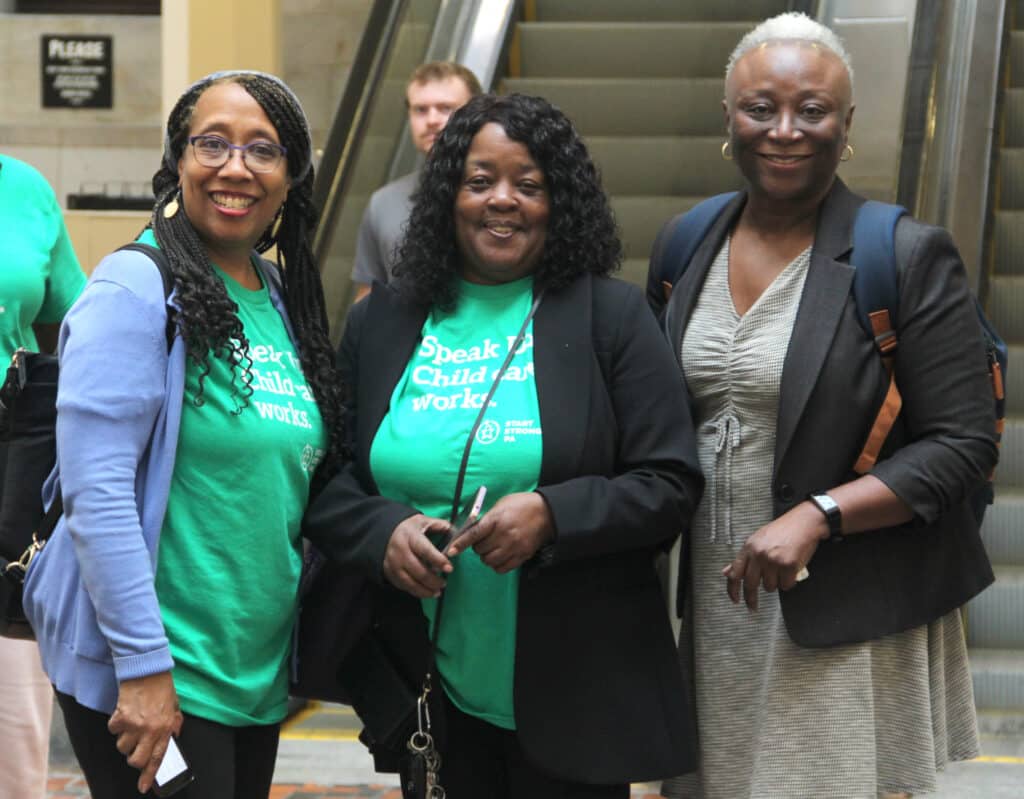
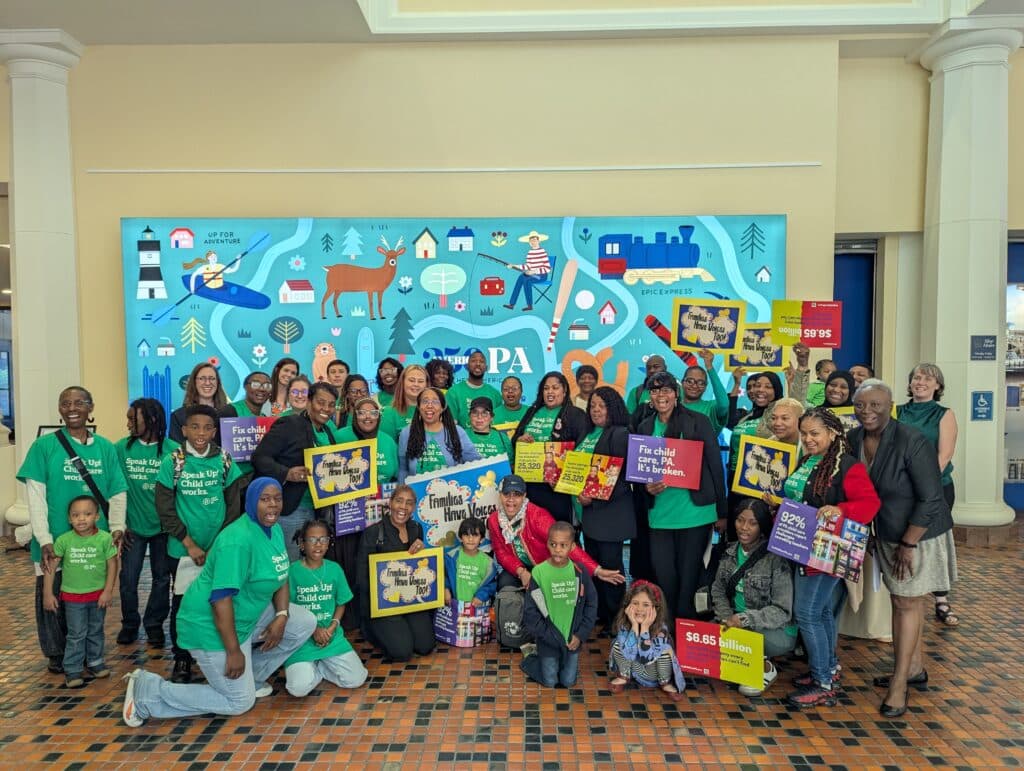
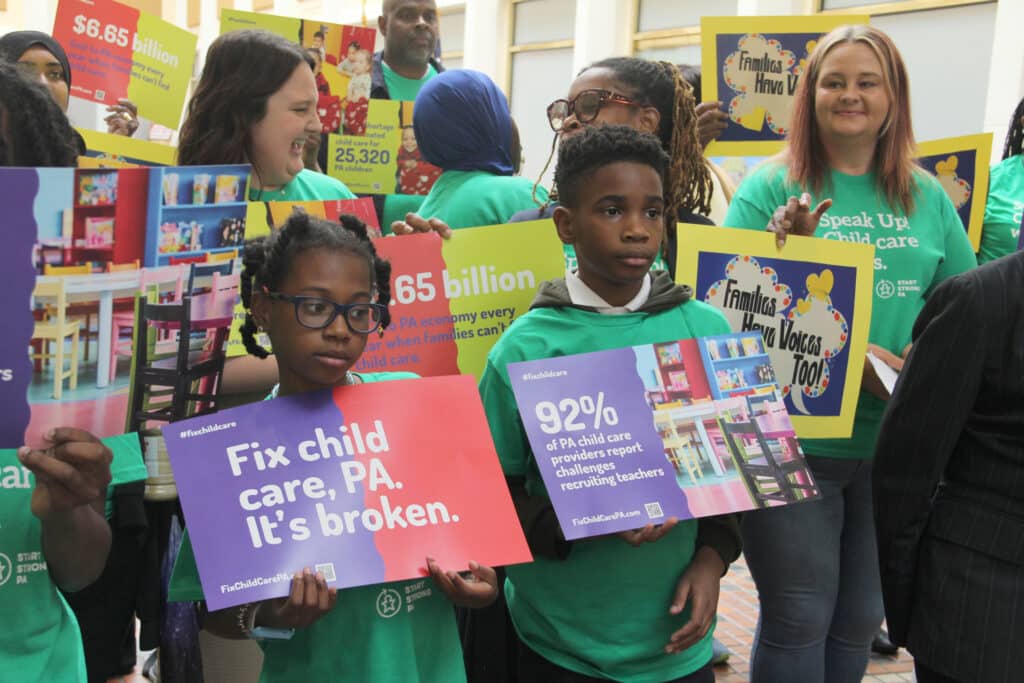
One legislator made a particularly striking statement that echoed the sentiments of many: FCC providers are giving children what they may be missing in their own homes—stability, a nurturing environment, and consistent care. This is especially reinforced in the programs that have male providers present. The presence of positive male role models in early childhood settings is rare, and yet so essential, particularly in urban communities where many children may not have such figures in their daily lives. The stories and insights shared by male FCC providers during our meetings stood out and left a lasting impression on the legislators. One lawmaker specifically asked to hear more from them, emphasizing the importance of male engagement in early childhood development and the emotional and developmental voids these providers help fill.
As a licensed family child care provider with over 33 years of experience and the vice president of QIP, I learned early on that getting involved in advocacy would be important to ensure that changes were made. Throughout the years, I have seen improvements in regulations and systems. I have also experienced subsidy rate increases. All of these improvements happened as a result of our advocacy efforts. Advocacy bridges the gap between the family child care providers and policymakers. Some legislators have never been in a family child care home. Prior to engaging with us they might think we sit at home with the children in front of the TV all day. Through advocacy and education, they learn that this is not the case. They hear about how we are educators supporting children’s positive brain development through loving and responsive care. They learn how we are often a one-woman (or one-man) business. We are the teacher, cook, administrator, maintenance person, accountant, counselor, bookkeeper, and nurse. We fill these roles to support the children and families in our communities and allow them to work and go to school. Family child care often fills in the gap and provides care during the extended nontraditional hours such as evenings and weekends. These details are important for legislators to know and we strive to share this information through our advocacy.
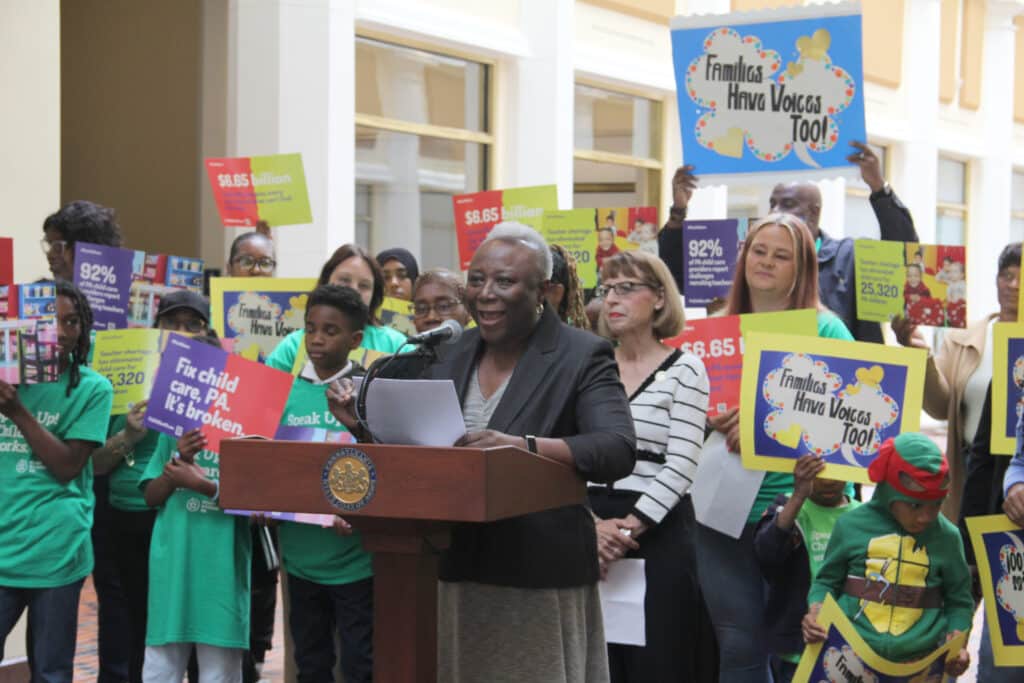
The opportunity to visit the Pennsylvania Capitol and speak directly with policymakers was a brand-new experience for many of the attendees—both adults and children. But having this experience has demystified the political process and empowered participants to see themselves as important contributors to change. The expressions of pride, hope, and determination were visible on their faces, especially after being received with respect and openness by those in power.
Several providers also spoke at a press conference held in the Capitol to share their testimonies and shed light on the vital role of FCC providers in the early education ecosystem, and the urgent need for policy and funding decisions that reflect their value and contributions.
Change can’t happen if we don’t advocate for the change we want to see. Family child care needs advocacy because we are so misunderstood. No two programs are the same. Each program is unique to the children and families that it serves, which is part of the magic of family child care. We are not a cookie-cutter model. Hosting awareness events like FCC Awareness Day in Harrisburg allows FCC providers to showcase our programs through pictures and speak to different legislators to talk about the importance of our work.
Family Child Care Awareness Day also provides an opportunity for FCC providers to network and connect with one another, leaving providers with a sense of community and empowerment. By attending, family child care educators realize they are not alone and that through unity, we can improve the conditions around our profession. FCC Awareness Day helps us recognize that we deserve to be heard and someone is listening. The day was more than just a visit—it was a transformative experience that amplified our collective voice, built stronger relationships with legislators, and ignited a renewed sense of advocacy and possibility within our community. It reinforced the message that when FCC providers, families, and children come together to speak their truth, they can truly be heard.
You can support prioritizing child care in the Pennsylvania governor’s new bill by signing this petition. To learn more about QIP and the work we do to advocate for family child care providers, visit our website.
